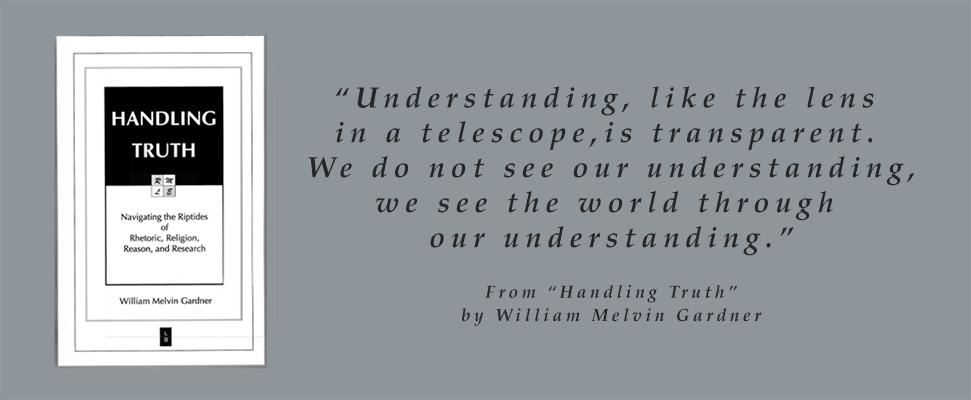Getting at the truth has for millennia challenged philosophers, theologians, scientists, and jurors, along with private detectives and the rest of us. It turns out, as in the song “Lookin’ for Love,” we may have been looking for truth in all the wrong places. William Gardner’s interesting, readable book Handling Truth helps us look in the right places. According to Gardner, there are four domains of truth: Mystica (which includes religion), Rhetorica (common sense), Logica (reason), and Empirica (research). Each domain has its own rules for deciding what is true; this means the domains often conflict with one another. For instance, in the Empirica domain, truth is revealed only through supportive research data. Reason alone is insufficient. In the Mystica domain, “God created man,” is a truth unacceptable by the rules of Empirica. In Empirica, “Human beings evolved from an earlier species.” Is any domain superior to another? No, but each has its own assumptions; and the listener or reader should learn to recognize each domain and the boundaries of its truth claims.
In Chapter 9, “Truth, Language and Information,” Gardner connects human language development with emergence of the four truth domains. From primitive referential gesturing, humans evolved to speak, then write and read. The printing press invention made information available to all, and computers further accelerated its supply. As language and its dissemination methods evolved, so did our conceptions of truth. Thanks to abundant print materials and the Internet, we are more informed now than ever before, but also less discerning. Gardner reminds us that information is true only within its domain of origin.
Handling Truth is an excellent book, one you will find yourself referring to long past the first read. I particularly recommend it for college undergraduate courses. As a retired teacher education professor, I regret that Handling Truth was unavailable when I was teaching.
